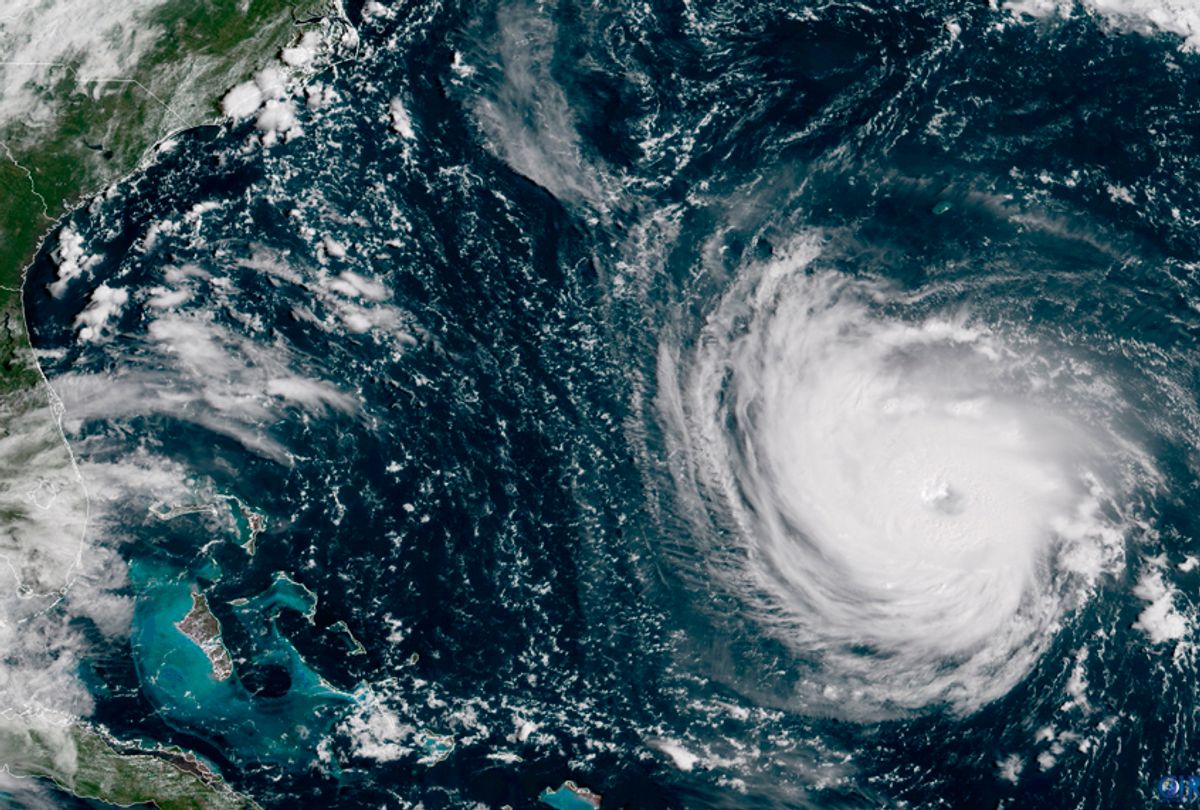"Donald Trump never sees value in Muslims, never sees value in the transgender community, never sees value in people of color," Rep. Luis Gutiérrez, D-Ill, told Salon on Tuesday.
The Chicago congressman, who is of Puerto Rican ancestry, was referring to the president's inadequate response to Hurricane Maria, one of the Trump administration's most shameful moments but one that has received remarkably little attention. As the East Coast braces for the impact of Hurricane Florence later this week, it is worth remembering that a Harvard study released in May estimated that 4,645 U.S. citizens (yes, Mr. President, Puerto Ricans are Americans) died as a result of the hurricane and its aftermath in 2017, far above the official government estimate of 64.
Even less bleak studies still have sobering findings. According to a study by George Washington University released last month, there were 2,975 excess deaths in Puerto Rico between September 2017 and February 2018. Both studies made it clear that low-income people and the elderly were the most vulnerable after the hurricane, and each one agreed that the inadequate government response when it came to providing relief and rebuilding infrastructure were crucial factors in the heavy human toll.
"He has never seen value in people of color," Gutiérrez explained about Trump. "He has never seen value in the diversity of this nation. He only sees value in the base of people that elected him president of the United States. And guess what? Puerto Ricans weren't part of that base of people.
"So it is political for this president. Because when the president says, 'Mexicans are murderers and rapists and drug dealers,' please understand that his message is that Latinos are this."
Gutiérrez has made frequent trips to the island where his parents were born in the aftermath of the tragedy. "When I made those trips there was no water, there was no electricity, virtually everywhere I went for the first four months," he said. "It wasn't until February when I started to see actual signs of improvement, when I went outside the metropolitan area of San Juan."
He added, "You could not visit the island [without knowing] that this absurd number of 60 people was a big lie."
READ MORE: The Year of the Woman in electoral politics? Maybe so — but not for Republicans
There are three important takeaways from Trump's failure in Puerto Rico.
The first involves Hurricane Florence, which is strengthening and barreling toward the United States right now. Has FEMA learned any lessons from its experiences with Hurricanes Harvey, Irma, Nate and Maria last summer?
FEMA spokesperson Lenisha Smith explained by email that the agency was focusing on "lessons learned" after the devastating hurricane season of 2017. "What the impacts from the 2017 disasters show is that there is also still work to do in order to build a culture of preparedness across the country at all levels of government, including improved resilience among our critical infrastructure. FEMA has already begun the process to update the Region II Caribbean Response Plan based on the lessons from the 2017 Hurricane Season and the adaptive planning performed by emergency managers during the incident." What all that means in practice remains to be seen.
In addition, Americans need to be told all over again that climate change very likely plays a role in the frequency and severity of recent hurricanes. While it is difficult to measure these things with precision, Kevin Trenberth — a senior scientist in climate analysis at the National Center for Atmospheric Research at the University Corporation for Atmospheric Research — told Salon last month that when it comes to the effects of global warming on our planet, "there will be ... major consequences and they grow over time. It does not look good." He specifically referred to a paper that he co-authored that described how Hurricane Harvey could have been linked to climate change.
The final lesson, unfortunately, is that Donald Trump allows politics to influence his policies, and appears fundamentally indifferent to regions of the country or constituencies that didn't support him. There's no guarantee his administration will respond well to Hurricane Florence (incompetence can still be a factor in these things), but people in North and South Carolina have a better chance of getting his attention than people in Puerto Rico.
"Here's Donald Trump's words, right? 'They expect us to do everything for them.' I'm paraphrasing, but he said that," Gutiérrez said. "The problem in Puerto Rico is that they want the government to do everything for them. In other words, we're lazy. And secondly, he said, 'Oh, Puerto Rico is just busting the budget.' That's another way of saying we're not worth it. You have to put it in the context of what the president said: We cost too much and we want everybody to do everything for us. Those are just lies.
"You have a president who goes to the island of Puerto Rico and gives himself a 10 while we know thousands of people were dying," Gutiérrez said. "I'm not saying that when he got there thousands of people had died, but the lack of action would cause thousands of deaths. We know from the studies at two major universities that many more people died as a consequence of the insufficient response after the hurricane than from the hurricane itself."

Shares